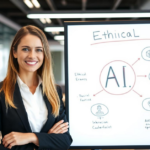India customers to view on amazon.in
Professional Attitude Tips For HR Interview Success
Acing an HR interview requires more than just answering questions correctly; it’s about showcasing a professional demeanor that leaves a lasting impression.
- Understanding the HR Interview Process
- The Purpose of HR Interviews
- What HR Professionals Look For in Candidates
- Different Types of HR Interview Formats
- Pre-Interview Preparation Strategies
- First Impressions Matter: Appearance and Punctuality
- Dressing Appropriately for Different Industries
- Grooming and Personal Hygiene
- Arriving Early and Managing Time
- Body Language Tips for HR Interview Success
- Mastering the Professional Handshake
- Maintaining Appropriate Eye Contact
- Posture and Seating Position
- Managing Nervous Gestures
- Professional Attitude Tips For HR Interview Success
- Displaying Confidence Without Arrogance
- Showing Enthusiasm for the Role
- Demonstrating Adaptability and Openness
- Balancing Professionalism with Authenticity
- Effective Communication Techniques
- Active Listening Skills
- Structuring Clear and Concise Responses
- Using Professional Vocabulary
- Avoiding Communication Pitfalls
- Mastering Virtual HR Interviews
- Setting Up Your Digital Environment
- Technical Preparation and Testing
- Virtual Body Language and Engagement
- Handling Technical Difficulties Professionally
- Answering Challenging HR Questions
- Discussing Strengths and Weaknesses
- Explaining Employment Gaps
- Addressing Salary Expectations
- Handling “Tell Me About Yourself”
- Responding to “Why Should We Hire You”
- Building Rapport with HR Interviewers
- Finding Common Ground
- Asking Thoughtful Questions
- Showing Genuine Interest in the Company Culture
- Demonstrating Cultural Fit and Values Alignment
- Maintaining Composure Under Pressure
- Techniques for Managing Interview Anxiety
- Responding to Unexpected Questions
- Recovering from Mistakes Gracefully
- Handling Stress Interviews
- Conclusion: Putting It All Together for HR Interview Success
- FAQ
- What are the most important things to research before an HR interview?
- How can I demonstrate a professional attitude during an HR interview?
- What should I wear to an HR interview?
- How can I manage my body language during an HR interview?
- What are some effective communication techniques for HR interviews?
- How should I prepare for virtual HR interviews?
- How can I answer challenging HR questions?
- What are some strategies for building rapport with HR interviewers?
- How can I maintain my composure under pressure during an HR interview?

To stand out as a top candidate, it’s essential to demonstrate the right attitude during the interview process. This involves a combination of preparation, confidence, and the ability to showcase your skills effectively.
By following the right strategies, you can significantly improve your chances of success in an HR interview.
Key Takeaways
- Understand the importance of a professional attitude in HR interviews.
- Learn how to prepare effectively for an HR interview.
- Discover techniques to showcase your skills and confidence.
- Find out how to leave a lasting impression on the interviewer.
- Understand the role of body language in an HR interview.
Understanding the HR Interview Process
To succeed in an HR interview, it’s essential to comprehend the process and what HR professionals look for in candidates. The HR interview is a critical step in the hiring process, designed to assess not only a candidate’s skills and experience but also their fit with the company culture.
The Purpose of HR Interviews
The primary purpose of HR interviews is to evaluate a candidate’s overall suitability for a role. This includes assessing their technical skills, experience, and soft skills, as well as their ability to adapt to the company culture.
What HR Professionals Look For in Candidates
HR professionals look for candidates who demonstrate a balance of professionalism and authenticity. They seek individuals who can showcase their skills and experience while also fitting in with the company’s values and culture.

Different Types of HR Interview Formats
Familiarizing yourself with the different types of HR interview formats can help you prepare more effectively. Common formats include:
- Panel interviews
- Video interviews
- Phone interviews
- One-on-one interviews
| Interview Format | Description | Tips for Success |
|---|---|---|
| Panel Interviews | Involves being questioned by multiple interviewers | Maintain eye contact with all panel members |
| Video Interviews | Conducted remotely using video conferencing software | Ensure good lighting and sound quality |
| Phone Interviews | Conducted over the phone, often used for initial screening | Speak clearly and confidently |
Pre-Interview Preparation Strategies
Pre-interview preparation is the foundation upon which successful HR interviews are built. It involves several key strategies that can significantly enhance your performance during the interview.
Researching the Company and Role
One of the most critical steps in pre-interview preparation is researching the company and understanding the role you’re applying for. This involves reviewing the company’s website, mission statement, and recent news to gain a comprehensive understanding of their values and current projects.
Key areas to focus on include:
- Company history and culture
- Recent achievements and milestones
- The specific requirements of the role you’re applying for
As Richard Branson once said,
“The best way to learn is to go outside and do something.”
Researching the company is an active way to learn about potential opportunities and challenges.

Preparing Your Professional Story
Preparing your professional story involves articulating your skills, experiences, and achievements in a way that aligns with the job requirements. It’s essential to be ready to discuss your background and how it makes you a suitable candidate for the position.
Practicing Common HR Questions
Practicing common HR questions is vital to feeling confident during the interview. This includes preparing for both behavioral and situational questions.
Behavioral Questions
Behavioral questions require you to provide specific examples from your past experiences. For example, “Tell me about a time when you overcame a significant challenge at work.”
Situational Questions
Situational questions present hypothetical scenarios to assess how you would handle certain situations. For instance, “What would you do if you were faced with a project that had a very tight deadline?”
| Question Type | Example | Tips for Answering |
|---|---|---|
| Behavioral | “Tell me about a time when you overcame a significant challenge.” | Use the STAR method: Situation, Task, Action, Result. |
| Situational | “What would you do if faced with a very tight deadline?” | Show your problem-solving skills and ability to prioritize tasks. |
By thoroughly preparing for these aspects, you can significantly improve your chances of success in an HR interview.
First Impressions Matter: Appearance and Punctuality
First impressions play a vital role in HR interviews, impacting how your professionalism is perceived. The way you present yourself can significantly influence the interviewer’s decision-making process.
Dressing Appropriately for Different Industries
Dressing appropriately for an HR interview is crucial as it shows respect for the company culture and the interviewer’s time. Different industries have varying dress code expectations.
- For corporate or finance industries, opt for formal attire such as suits and ties.
- In tech or creative fields, business casual may be more appropriate.
Researching the company culture can help you make an informed decision about what to wear.

Grooming and Personal Hygiene
Good grooming and personal hygiene are essential components of making a positive first impression. Ensure that your hair is clean and styled neatly, and that your nails are trimmed.
Pay attention to details such as:
- Clean and ironed clothes
- Minimal and tasteful jewelry
- Fresh breath and a clean scent
Arriving Early and Managing Time
Arriving early to an HR interview demonstrates punctuality and respect for the interviewer’s time. Plan to arrive at least 10-15 minutes before the scheduled interview time.
| Time Management Tips | Description |
|---|---|
| Plan Your Route | Research the location and plan your route in advance to avoid traffic or getting lost. |
| Account for Delays | Consider potential delays such as traffic or public transport issues. |
| Arrive Early | Use the extra time to collect your thoughts, review your notes, and make a calm impression. |
By focusing on appearance and punctuality, you can create a positive first impression that sets the stage for a successful HR interview.
Body Language Tips for HR Interview Success
When it comes to acing an HR interview, your body language speaks volumes. It’s not just about what you say, but how you say it and present yourself. Effective body language can convey confidence, professionalism, and enthusiasm, making a positive impression on the interviewer.
Mastering the Professional Handshake
A firm but not crushing handshake is the first step in making a good impression. It signifies confidence and respect. Ensure your handshake is accompanied by a smile and direct eye contact.
Maintaining Appropriate Eye Contact
Eye contact is crucial as it conveys sincerity and confidence. Aim for a balance between maintaining eye contact and avoiding staring aggressively. It’s recommended to maintain eye contact for about 70-80% of the conversation.

Posture and Seating Position
Maintaining good posture shows that you’re engaged and interested in the conversation. Sit up straight and avoid slouching or leaning too far back. Your seating position should be relaxed yet attentive.
Managing Nervous Gestures
It’s natural to feel nervous, but fidgeting or displaying other nervous gestures can detract from your professional image. Practice relaxation techniques such as deep breathing to help manage your nerves. Being mindful of your body language can help you appear more composed and confident.
Some key tips for managing nervousness include:
- Practice mindfulness or meditation to calm your nerves before the interview.
- Use positive self-talk to boost your confidence.
- Engage in physical activity before the interview to release tension.
Professional Attitude Tips For HR Interview Success
To stand out in an HR interview, it’s essential to showcase a professional attitude that balances confidence with enthusiasm. This balance is crucial as it demonstrates your capability and eagerness for the role without coming across as arrogant or overly cautious.

Displaying Confidence Without Arrogance
Confidence is key in an HR interview, as it shows that you believe in your abilities. However, it’s vital to differentiate between confidence and arrogance. To achieve this, focus on your achievements and qualifications without belittling others or appearing overly self-assured.
Showing Enthusiasm for the Role
Demonstrating genuine enthusiasm for the position shows that you’re motivated and interested in the company’s mission. Highlight specific aspects of the job that excite you and explain how your skills align with the role’s requirements.
Demonstrating Adaptability and Openness
Adaptability is highly valued by employers, as it indicates that you can adjust to new challenges and environments. Showcase instances where you’ve successfully adapted to change or taken on new responsibilities.
Balancing Professionalism with Authenticity
Balancing professionalism with being authentic is a delicate but important aspect of HR interviews. While maintaining a professional demeanor, be true to yourself and let your personality shine through. This helps in building a genuine connection with the interviewer.
By incorporating these professional attitude tips, you can significantly enhance your chances of success in an HR interview. Remember, it’s about showcasing your skills and personality in a professional and engaging manner.
Effective Communication Techniques
Effective communication is the cornerstone of success in HR interviews, enabling candidates to convey their qualifications and fit for the role. It encompasses a range of skills and strategies that, when mastered, can significantly enhance a candidate’s chances of making a positive impression.
Active Listening Skills
Active listening is a critical component of effective communication. It involves fully concentrating on what the interviewer is saying, understanding the context, and responding thoughtfully. To demonstrate active listening, maintain eye contact, nod to show you’re engaged, and ask clarifying questions if needed.
Structuring Clear and Concise Responses
Structuring your responses in a clear and concise manner is vital. This can be achieved by using the STAR method (Situation, Task, Action, Result) to frame your answers. This technique helps in providing comprehensive responses that are easy to follow.

Using Professional Vocabulary
Employing professional vocabulary during an HR interview is essential. It not only reflects your level of professionalism but also helps in conveying your ideas more effectively. Avoid using jargon or overly technical terms unless relevant to the job.
Avoiding Communication Pitfalls
Being aware of common communication pitfalls can help you avoid them. These include using filler words (like “um” or “ah”), speaking too quickly, or failing to provide specific examples. Practicing your responses can help mitigate these issues.
| Communication Technique | Description | Benefit |
|---|---|---|
| Active Listening | Fully concentrating on the interviewer’s questions | Shows engagement and understanding |
| Clear and Concise Responses | Using the STAR method to structure answers | Enhances clarity and impact of responses |
| Professional Vocabulary | Using appropriate and professional language | Reflects professionalism and enhances credibility |
Mastering Virtual HR Interviews
As remote work continues to reshape the professional landscape, mastering virtual HR interviews has become an essential skill for job seekers. The virtual interview process demands a unique blend of technical know-how, professional presence, and interpersonal skills.
Setting Up Your Digital Environment
Creating a suitable digital environment is crucial. This involves ensuring a stable internet connection, using a quality webcam, and selecting a quiet, well-lit space. Minimize distractions by choosing a room with a plain background and informing household members of your interview time.
Technical Preparation and Testing
Technical glitches can be a significant source of stress. Conduct thorough tests of your equipment and software before the interview. Ensure your audio and video are working correctly, and familiarize yourself with the virtual meeting platform.

Virtual Body Language and Engagement
In virtual interviews, non-verbal cues are just as important. Maintain eye contact by looking into the camera, not at the screen. Use nods and smiles to show engagement, and be mindful of your posture.
Handling Technical Difficulties Professionally
Despite preparation, technical issues may arise. Stay calm and communicate clearly with the interviewer about the problem. Having a backup plan, such as a phone number or alternative platform, can be helpful.
Answering Challenging HR Questions
One of the most critical aspects of acing an HR interview is being prepared to answer challenging questions confidently. These questions are designed to assess your fit for the role, your skills, and your overall suitability for the company culture.
Discussing Strengths and Weaknesses
When discussing your strengths, be specific and relate them to the job requirements. For example, if the job requires strong communication skills, highlight a time when your communication skills helped resolve a workplace issue. When talking about weaknesses, frame them as areas for improvement and discuss what you’re doing to address them.
Explaining Employment Gaps
Be honest and concise when explaining employment gaps. If you took time off to care for a family member or to pursue further education, explain how this experience has prepared you for the role you’re applying for. Highlighting any relevant skills or certifications gained during this period can be beneficial.
Addressing Salary Expectations
Research the market to determine a fair salary range for your position. Be prepared to discuss your expectations and how they align with industry standards. It’s also useful to consider benefits and other compensation elements when discussing salary.

Handling “Tell Me About Yourself”
This is often an opening question, and it’s your chance to make a strong first impression. Keep your response brief and focused on your professional background, highlighting experiences relevant to the job. Practice your response to ensure it feels natural.
Responding to “Why Should We Hire You”
To answer this effectively, align your skills and experiences with the job requirements. Show that you’ve done your research on the company and explain how you can contribute to its goals. Confidence and a positive attitude can make your response more compelling.
| Challenging HR Questions | Tips for Answering |
|---|---|
| Discussing Strengths and Weaknesses | Be specific, relate to job requirements, and frame weaknesses as areas for improvement. |
| Explaining Employment Gaps | Be honest, concise, and highlight relevant skills or certifications gained. |
| Addressing Salary Expectations | Research market standards, consider benefits, and be prepared to negotiate. |
| Handling “Tell Me About Yourself” | Keep it brief, focused on professional background, and practice your response. |
| Responding to “Why Should We Hire You” | Align skills with job requirements, show company research, and display confidence. |
Building Rapport with HR Interviewers
Building rapport with HR interviewers can significantly influence the outcome of your interview. Establishing a connection with the interviewer can make your interaction more enjoyable and memorable, increasing your chances of success.
Finding Common Ground
One effective way to build rapport is by finding common ground with the interviewer. This could be a shared interest, a similar background, or even a hobby. By discovering these commonalities, you can create a sense of camaraderie and make the interview feel more like a conversation.
Asking Thoughtful Questions
Asking thoughtful questions not only demonstrates your interest in the company but also shows your level of preparation. Craft questions that are relevant to the role and the company culture, showcasing your enthusiasm and engagement.
Showing Genuine Interest in the Company Culture
Showing genuine interest in the company culture is vital. Research the company’s values, mission, and work environment to understand whether you’d be a good fit. Expressing your alignment with these aspects can help build a stronger connection with the interviewer.
Demonstrating Cultural Fit and Values Alignment
Demonstrating cultural fit and values alignment is crucial. Highlight how your personal values and professional goals align with those of the company. This shows that you’re not just looking for a job, but you’re interested in being part of the organization’s community.
Maintaining Composure Under Pressure
The ability to remain composed under pressure can make or break your HR interview. It’s not just about answering questions correctly; it’s about doing so with confidence and poise. In this section, we’ll explore techniques to help you stay calm and composed during your HR interview.
Techniques for Managing Interview Anxiety
Managing interview anxiety is crucial for maintaining composure. Deep breathing exercises can help calm your nerves. Practicing mindfulness and visualization techniques can also reduce anxiety. Additionally, preparing thoroughly for the interview can boost your confidence and reduce stress.
Responding to Unexpected Questions
Unexpected questions can catch you off guard, but there are strategies to handle them. Take a moment to pause and collect your thoughts before responding. Use the STAR method (Situation, Task, Action, Result) to structure your response. This approach helps you stay focused and provide a clear, concise answer.
Recovering from Mistakes Gracefully
Mistakes happen, but it’s how you recover that matters. If you realize you’ve made a mistake, acknowledge it calmly and correct it. Don’t dwell on the error; instead, move forward with confidence.
Handling Stress Interviews
Some interviews are designed to test your composure under stress. Stay calm and focus on the question at hand. Remember, the interviewer’s goal is to assess your problem-solving skills and professionalism under pressure.
| Technique | Description | Benefit |
|---|---|---|
| Deep Breathing | Slow, deliberate breaths to calm the nervous system | Reduces anxiety |
| STAR Method | Structured response technique for behavioral questions | Improves clarity and confidence |
| Mindfulness | Practice being present in the moment | Enhances focus and calmness |
Conclusion: Putting It All Together for HR Interview Success
Succeeding in an HR interview requires a combination of preparation, professionalism, and the right attitude. By understanding the HR interview process and preparing thoroughly, you can significantly improve your chances of hr interview success.
To achieve this, focus on demonstrating a professional attitude, maintaining your composure under pressure, and building rapport with the interviewer. Practicing common HR questions and mastering virtual HR interviews can also give you an edge.
As you prepare for your next HR interview, remember to put these strategies into practice. With the right mindset and preparation, you’ll be well on your way to acing your next HR interview. Here are some final tips to keep in mind: stay confident, be authentic, and show enthusiasm for the role.
By following these tips and putting it all together, you’ll be able to showcase your skills and experience, increasing your chances of hr interview success.
FAQ
What are the most important things to research before an HR interview?
Researching the company, understanding the role you’re applying for, and familiarizing yourself with the company culture are crucial. This helps you tailor your responses to show how your skills and experience align with the position.
How can I demonstrate a professional attitude during an HR interview?
Displaying a professional attitude involves being confident without being arrogant, showing enthusiasm for the role, and demonstrating adaptability and openness. It’s also about being authentic and true to yourself while maintaining professionalism.
What should I wear to an HR interview?
Dressing appropriately for the industry is key. For most corporate environments, business formal attire is recommended. For more creative fields, business casual may be acceptable. Ensure your grooming and personal hygiene are also well-maintained.
How can I manage my body language during an HR interview?
Mastering a professional handshake, maintaining appropriate eye contact, being mindful of your posture, and managing nervous gestures can all contribute to a positive impression. Practice these elements to feel more confident.
What are some effective communication techniques for HR interviews?
Practicing active listening, structuring your responses clearly and concisely, using professional vocabulary, and avoiding filler words or jargon are all effective techniques. Being aware of potential communication pitfalls can also help you communicate more effectively.
How should I prepare for virtual HR interviews?
Ensure your digital environment is professional, test your technology beforehand, understand virtual body language, and be prepared to handle any technical difficulties that may arise. This will help you feel more confident and composed during the interview.
How can I answer challenging HR questions?
Prepare to discuss your strengths and weaknesses, explain any employment gaps, and address salary expectations. Practice responding to common questions like “Tell me about yourself” and “Why should we hire you” to feel more confident.
What are some strategies for building rapport with HR interviewers?
Finding common ground, asking thoughtful questions, showing genuine interest in the company culture, and demonstrating that your values align with those of the company can all help build rapport. Be authentic and engage with the interviewer.
How can I maintain my composure under pressure during an HR interview?
Techniques for managing interview anxiety, such as deep breathing, can help. Being prepared to respond to unexpected questions and knowing how to recover from mistakes gracefully are also important. Understand how to handle stress interviews to further enhance your composure.








